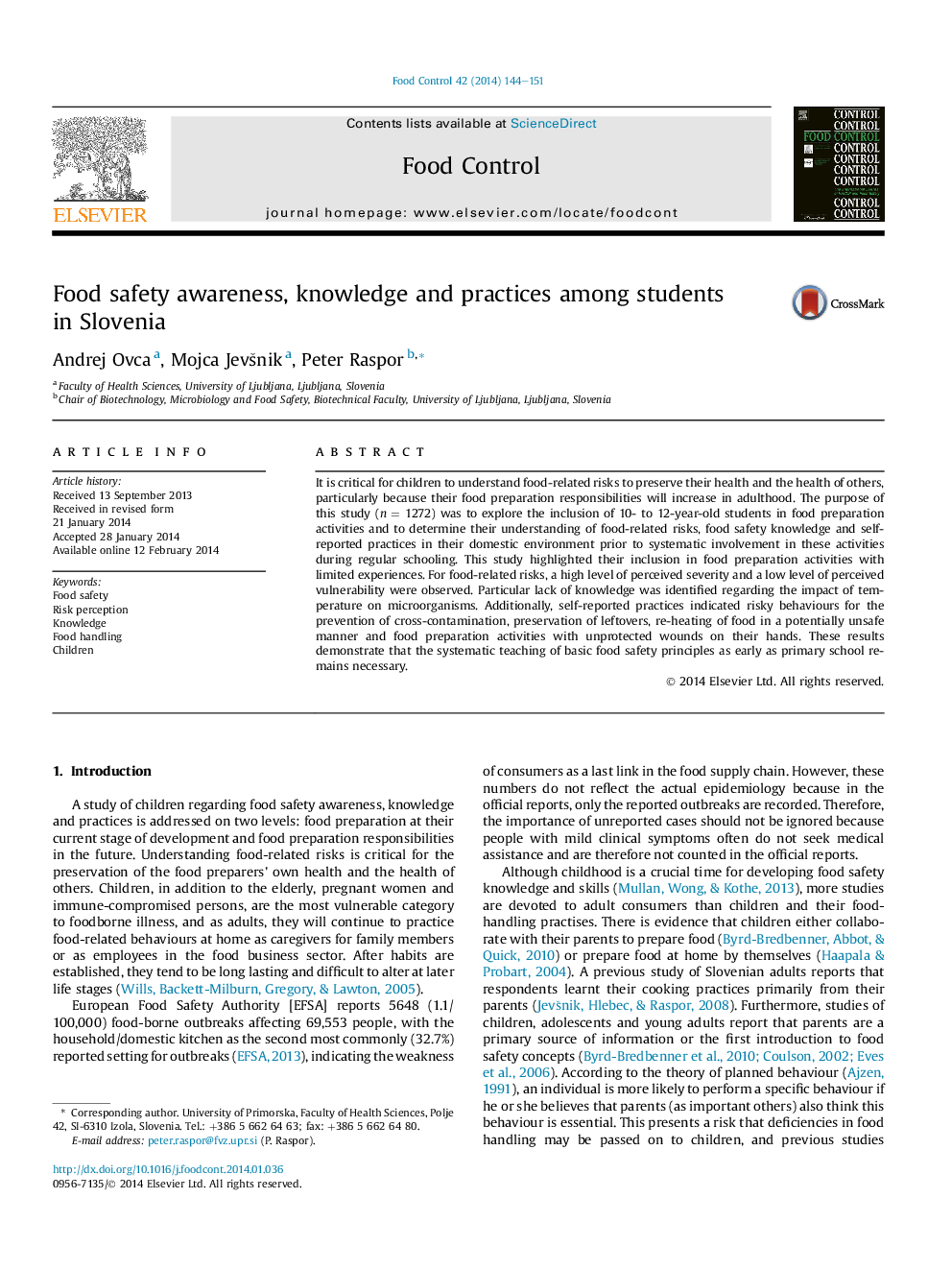| Article ID | Journal | Published Year | Pages | File Type |
|---|---|---|---|---|
| 6391668 | Food Control | 2014 | 8 Pages |
â¢Frequent inclusion in food preparation activities with limited experiences.â¢High perceived severity and low vulnerability towards food-related risk.â¢Particular lack of knowledge regarding the impact of temperature on microorganisms.â¢Self-reported practices indicate risky behaviour on several fields of investigation.
It is critical for children to understand food-related risks to preserve their health and the health of others, particularly because their food preparation responsibilities will increase in adulthood. The purpose of this study (n = 1272) was to explore the inclusion of 10- to 12-year-old students in food preparation activities and to determine their understanding of food-related risks, food safety knowledge and self-reported practices in their domestic environment prior to systematic involvement in these activities during regular schooling. This study highlighted their inclusion in food preparation activities with limited experiences. For food-related risks, a high level of perceived severity and a low level of perceived vulnerability were observed. Particular lack of knowledge was identified regarding the impact of temperature on microorganisms. Additionally, self-reported practices indicated risky behaviours for the prevention of cross-contamination, preservation of leftovers, re-heating of food in a potentially unsafe manner and food preparation activities with unprotected wounds on their hands. These results demonstrate that the systematic teaching of basic food safety principles as early as primary school remains necessary.
